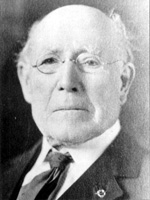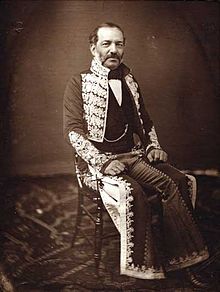
Sen. Dianne Feinstein, D-Calif.
[Sen. Feinstein] – U.S. Sens. Dianne Feinstein and Barbara Boxer (both D-Calif.) introduced the California Emergency Drought Relief Act on Thursday. The bill contains both short- and long-term provisions designed to help communities cope with the ongoing drought and combat future droughts.
The bill is the product of months of meetings between Senator Feinstein and her staff, federal, state and local officials, environmental groups, water districts and other stakeholders. Feinstein staff visited dozens of water projects throughout the state to collect ideas, while Washington staff consulted frequently with federal agencies.
“I’m hopeful the bill we’re introducing today will serve as a template for the kinds of short-term and long-term solutions California needs to address this devastating drought,” Senator Feinstein said. “Next steps for this bill will include a public committee hearing in the fall, after which I expect California-specific language will be folded into a broader Western drought bill in the Energy Committee. In the meantime, my staff will continue to collect feedback on ways to improve and build on the bill.
Sen. Feinstein continued: “I’ve introduced a lot of bills over the years, and this one may be the most difficult, and a warming climate will only make things worse. For months now my staff and I have held meetings with many interested parties. My state staff has visited almost 50 water agencies, and my Washington staff has consulted closely with federal agencies to ensure the bill adheres to environmental laws. I think the bill we’re introducing today can achieve broad congressional and public support and will be a great help to California.”

U.S. Sen. Barbara Boxer
Sen. Boxer said: “I am pleased to be sponsoring Senator Feinstein’s new water bill, which addresses California’s devastating drought in a multi-faceted way. I am now sponsoring three drought bills because of the enormity of this crisis, and I hope we can advance the best of these measures to help alleviate the pain being felt across California.”
The bill includes a range of provisions with the goals of moving and creating water long-term to help those communities suffering the worst effects of the drought, while remaining completely compliant with environmental laws such as the Endangered Species Act and Clean Water Act as well as all biological opinions.
A summary of the key provisions follows:
Assistance for drought-stricken communities
Many rural and disadvantaged communities throughout California are at risk of running out of clean water. Approximately 2,091 wells are already dry or will soon run dry, endangering thousands of families. As more wells and other water supplies dry up, the federal government has an obligation to step up and help those communities and families.
- Creates a new USDA program to help stabilize water supplies for rural and disadvantaged communities with fewer than 10,000 residents. Larger communities may also qualify if they have experienced a significant decline in quantity or quality of drinking water. Funds can be used for both short-term solutions (such as bottled water deliveries) and long-term solutions (such as water treatment systems). Rep. Huffman introduced similar legislation that provides increased funding for the USDA’s emergency grant program.
- Prioritizes State Revolving Funds for communities most at risk of running out of water. By directing funds to these communities most at risk, the Act provides the State with the tools necessary to provide water for public health and safety and to increase drought resiliency.
Desalination
Major desalination projects like the $1 billion Poseidon plant in Carlsbad (which will soon generate enough water to supply 300,000 San Diego County residents) prove that new technology is quickly making desalination a viable option for many communities. The bill would enable the federal government to help support desalination projects and research, with the goal of further reducing costs and environmental impacts.
- The bill identifies 26 desalination projects throughout California capable of producing more than 330,000 acre-feet of water per year.
- Reauthorizes the Desalination Act and authorizes $50 million over five years for feasibility and design for both sea and brackish water desalination projects. Senator Boxer also introduced legislation that would reauthorize the Desalination Act, but at lower funding levels.
- Reauthorizes the Desalination Act and authorizes $50 million over five years for desalination research projects, such as improving existing reverse osmosis and membrane technology, reducing the environmental effects of seawater desalination and developing next-generation technologies to reduce the cost of desalination. This is similar to a provision in a bill introduced by Senator Boxer.
Storage projects
Given the consensus that droughts will grow more severe and the storms that follow more devastating, storing water during wet years for use in dry years is vital. The severity of this drought has highlighted the inadequacy of California’s reservoir capacity. The bill takes steps to promote the building of new reservoirs or increasing the capacity of existing reservoirs.
- Establishes deadlines for the Bureau of Reclamation to complete feasibility studies to allow Calfed storage projects to compete for Proposition 1 bond funds.
- Authorizes $600 million for Calfed water storage projects, which may include both federal projects (Shasta) and non-federal projects (Sites, Temperance Flat, Los Vaqueros).
- Updates Army Corps dam operations to increase water supply while reducing flood risk. Rep. Huffman introduced legislation with a similar program.
Water recycling
Major advancemnts have been made in the field of water recycling. Orange County Water District, for example, recently completed an expansion of its water reuse facility to provide more than 100 million gallons per day. As communities continue to conserve water, more can be done to support these projects.
- The bill identifies 105 potential recycling projects with the ability to produce almost 854,000 acre-feet of water. This provision expands upon the list of water-recycling projects included in legislation introduced by Rep. McNerney.
- Authorizes $200 million in increased funds for the Bureau of Reclamation’s water recycling and reuse program (Title XVI) to help fund projects to reclaim and reuse wastewaters and naturally impaired ground and surface water. This provision would also remove the congressional requirement for the authorization of specific projects. This provision is similar to legislation introduced by Rep. Matsui.
Conservation and groundwater recharge
Communities throughout California are subject to mandatory conservation rates as high as 35 percent. As consumers do more to save water, there are additional steps that can be taken by government and the agriculture industry.
- Facilitates increased agricultural conservation and groundwater recharge. This provision authorizes Interior and other water users to pay irrigators to install drip irrigation or other technologies to conserve water, and receive in return the majority of the water conserved. A portion of the saved water must be used for groundwater recharge.
- Authorizes an EPA program to label water-efficient products for consumers. Senator Boxer also introduced a bill that authorizes the same EPA program.
- Requires water conservation projects at California military installations.
- Authorizes a Department of the Interior program to establish an open system with data on water quality, climate and weather effects and erosion. Senator Boxer introduced a bill that authorizes the same program.
Additional funding programs
By providing funds for the most cost-effective federal programs, Washington can help state and local agencies leverage existing dollars into larger projects.
- Loan guarantees: Authorizes $200 million for the Reclamation Infrastructure Finance and Innovation Act (RIFIA). This loan-guarantee program will allow water districts and municipalities to leverage loans and loan guarantees for water projects, reducing repayment loan costs by as much as 25 percent. This is modeled after TIFIA, a successful loan-guarantee program for transportation projects. Senator Boxer and Rep. Huffman have introduced legislation with a similar program.
- WaterSMART: Authorizes $100 million in increased funds for the Bureau of Reclamation’s WaterSMART program to help finance water reclamation and reuse projects as well as water efficiency initiatives. Rep. Huffman has introduced similar legislation that increases funding for WaterSMART. This provision would also create a new grant program for integrated regional water management, reclamation and recycling, with a maximum federal contribution up to $20 million or 25 percent of a project’s cost.
- Bureau of Reclamation funds: Additional long-term funding of $150 million per year beginning in fiscal year 2026 for storage, water recycling and desalination projects, financed out of the annual surplus in the Reclamation Fund in the U.S. Treasury.
Research and innovation
Making sure the newest and most cost-effective technology is available will continue to address the worst effects of the drought. Supporting and utilizing the latest science is a key goal of the bill.
- Authorizes $35 million in grants for technological innovations for companies that devise innovative solutions in areas such as water metering, well-monitoring, on-site recycling and stormwater capture.
Protecting endangered and threatened fish and wildlife
There are a number of short-term, low-cost proposals to protect and assist in the protection and recovery of fish populations including salmon and smelt.
- Endangered Species Act recovery plan: Authorizes $20 million to begin implementation of NMFS’ Endangered Species Act recovery plan, a tool to provide habitat and flow restoration throughout the Sacramento and San Joaquin basins.
- Trapping and barging: Authorizes $3 million to trap and barge fish to reduce mortality rates on migration through the Delta. Rep. Huffman has a provision on barging hatchery fish.
- Predator species: Addresses key stressors on fish populations including limiting invasive species like striped bass and removing predator habitat, to be paid for by participating water districts.Rep. Valadao and Rep. Denham introduced legislation with a similar provision.
- Spawning habitat: Authorizes $4 million to create additional spawning habitat.
- Water system management: Authorizes $11.5 million for federal agencies to manage the water system more precisely using updated science and tools, including smelt distribution studies and refined temperature models. Rep. Huffman includes a provision on updated forecasting and temperature models.
- Actions to benefit refuges: Authorizes $2 million annually for five years for improved conveyance of water to refuges to help restore and protect critical wetland habitat for wildlife refuges, one of the goals of the Central Valley Project Improvement Act.
Moving water to communities that need it most
Provisions in the bill to help move water efficiently to those areas where it is most needed were carefully drafted to remain consistent with environmental laws including the Endangered Species Actand the Clean Water Act, as well as all biological opinions.
These provisions, closely based on the 2014 Feinstein/Boxer legislation that was unanimously approved by the Senate, include changes limited to additional environmental and water rights protections and the removal of several controversial provisions.
Environmental protections added since 2014 bill:
- Adhering to environmental law: Makes clear that all actions in the bill must be taken consistent with law and that none of the provisions violate the Endangered Species Act, the Clean Water Act, biological opinions, the Central Valley Improvement Act or state law.
- Water transfers: Water transfers between sellers and buyers help stretch California’s water supplies in dry times. The bill includes a provision to allow limited Delta water transfers in April and May so communities and farms can make up for reduced deliveries. Specifically, the bill allows transfers to occur under certain circumstances at a 1:1 ratio. The provision includes significant safeguards:
- The agencies may only use the 1:1 ratio for transfers if it avoids adverse effects on endangered species not considered by the biological opinions.
- The water covered by the 1:1 ratio must be additional flow on top of the regular flow of the river. Any environmental effects of transferred water must be permissible under applicable law.
- National Marine Fisheries Service and U.S. Fish and Wildlife Service (the agencies that implement the Endangered Species Act), in providing technical assistance on the bill, have stated that these safeguards ensure the provision is in compliance with environmental laws and biological opinions.
- Environmental review: A requirement in the 2014 bill for 30-day environmental reviews of water transfers and installation/removal of temporary barriers was eliminated. Instead, these reviews must take place within “the shortest practicable time period.”
- Water rights: The bill includes additional provisions to protect water rights.
Provisions included from 2014 Senate bill to help move water to areas that most need it:
- Pumping levels: Any time more water is pumped from the Delta, that pumping must remain consistent with the Endangered Species Act and biological opinions. This will allow for more water to be pumped to those who most need it while protecting endangered and threatened species.
- Monitoring for smelt: During periods when water turbidity is high and smelt are likely to move near pumps, scientists must daily monitor for the presence of the fish. Pumps may only run at high levels when smelt are not present. This language is similar to language in a bill introduced by Rep. Valadao.
- Reviewing transfers and barriers: Environmental reviews of water transfers and the installation and removal of temporary barriers will be expedited. These reviews will ensure these actions are consistent with environmental laws. This language is similar to language in a bill introduced by Rep. Valadao.
- Cross-Channel Gates: Delta Cross-Channel Gates may only be opened for additional time if doing so remains consistent with water quality-related orders issued by the State Water Resources Control Board. This language is similar to language in a bill introduced by Rep. Valadao.
- Water transfers: Water transfers sent into the Delta in April and May can only be withdrawn at a 1:1 ratio if the transfers adhere to environmental law and biological opinions. The water covered by the 1:1 ratio must be additional flow on top of the regular flow of the river, and the environmental effects of the transferred water must be permissible under applicable law. This language is similar to language in a bill introduced by Rep. Valadao.
Like this:
Like Loading...
Related




 Tweet This
Tweet This Facebook
Facebook Digg This
Digg This Bookmark
Bookmark Stumble
Stumble RSS
RSS




























REAL NAMES ONLY: All posters must use their real individual or business name. This applies equally to Twitter account holders who use a nickname.
8 Comments
Let’s see what’s in it. It might be too little to late but El Niño is coming so let’s see.
She just needs to crawl into the hole she came from and never come out again.
Nope. But nice try.
An El Niño would only put a small dent in the drought conditions. It wouldn’t solve anything.
Maybe she should have her husband donate the millions he’s making on the high speed rail to California huh
True Jared. But we are so far behind in water conservation issues. Here w sit by an ocean and dont use that water. Desalination plants and grey water reservoirs to collect run off would helpto. But I’ve lived through several El Ninos and we had 40in of water. Get ready.it will help. Keep conserving too.
The fact that is is illegal to reuse grey water for our own plants is insane! We are doing everything we can to help. we put buckets in our sink when we wash our hands and dump that into the planters, we use succulent plans or other drought resistant plants… have been since BEFORE the water mandates. Yet we still get notices that we didnt LOWER our water use… It is insane.
John I feel for you. We are doing the same thing. Rinse my dishes in a lg.bowl and give the water to lg.bushes. That is gray water,right?Wish I cold rinse water from my washing machine. And shower water too.you know if ,like use, you were never really wasteful, it’s harder to lower your bill to please them. When I see all the water waste around town, I think they best not wag a finger at me.lol?